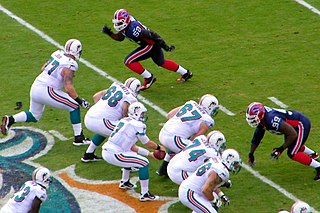
Drinking games are games which involve the consumption of alcoholic beverages and often enduring the subsequent intoxication resulting from them. Evidence of the existence of drinking games dates back to antiquity. Drinking games have been banned at some institutions, particularly colleges and universities.

A live action role-playing game (LARP) is a form of role-playing game where the participants physically portray their characters. The players pursue goals within a fictional setting represented by real-world environments while interacting with each other in character. The outcome of player actions may be mediated by game rules or determined by consensus among players. Event arrangers called gamemasters decide the setting and rules to be used and facilitate play.
A shill, also called a plant or a stooge, is a person who publicly helps or gives credibility to a person or organization without disclosing that they have a close relationship with said person or organization, or have been paid to do so. Shills can carry out their operations in the areas of media, journalism, marketing, politics, sports, confidence games, cryptocurrency, or other business areas. A shill may also act to discredit opponents or critics of the person or organization in which they have a vested interest.

In economics, a public good is a good that is both non-excludable and non-rivalrous. Use by one person neither prevents access by other people, nor does it reduce availability to others. Therefore, the good can be used simultaneously by more than one person. This is in contrast to a common good, such as wild fish stocks in the ocean, which is non-excludable but rivalrous to a certain degree. If too many fish were harvested, the stocks would deplete, limiting the access of fish for others. A public good must be valuable to more than one user, otherwise, its simultaneous availability to more than one person would be economically irrelevant.
Consent occurs when one person voluntarily agrees to the proposal or desires of another. It is a term of common speech, with specific definitions as used in such fields as the law, medicine, research, and sexual consent. Consent as understood in specific contexts may differ from its everyday meaning. For example, a person with a mental disorder, a low mental age, or under the legal age of sexual consent may willingly engage in a sexual act that still fails to meet the legal threshold for consent as defined by applicable law.

Touch football is an amateur variant of American football and Canadian football. The basic rules are similar to those of the mainstream game, but to end a down, the person carrying the ball need only be touched, instead of tackled, by a member of the opposite team. This rule change gave the game its name, to differentiate it from other variants. It is similar to street football, another amateur variant, however in street football full contact is allowed.

Human subject research is systematic, scientific investigation that can be either interventional or observational and involves human beings as research subjects, commonly known as test subjects. Human subject research can be either medical (clinical) research or non-medical research. Systematic investigation incorporates both the collection and analysis of data in order to answer a specific question. Medical human subject research often involves analysis of biological specimens, epidemiological and behavioral studies and medical chart review studies. On the other hand, human subject research in the social sciences often involves surveys which consist of questions to a particular group of people. Survey methodology includes questionnaires, interviews, and focus groups.
Game programming, a subset of game development, is the software development of video games. Game programming requires substantial skill in software engineering and computer programming in a given language, as well as specialization in one or more of the following areas: simulation, computer graphics, artificial intelligence, physics, audio programming, and input. For multiplayer games, knowledge of network programming is required. In some genres, e.g. fighting games, advanced network programming is often demanded, as the netcode and its properties are considered by players and critics to be some of the most important metrics of the game's quality. For massively multiplayer online games (MMOGs), even further knowledge of database programming and advanced networking programming are required. Though often engaged in by professional game programmers, there is a thriving scene of independent developers who lack a relationship with a publishing company.

Communal work is a gathering for mutually accomplishing a task or for communal fundraising. Communal work provided manual labour to others, especially for major projects such as barn raising, "bees" of various kinds, log rolling, and subbotniks. Different words have been used to describe such gatherings.
An icebreaker is a brief facilitation exercise intended to help members of a group begin the process of working together or forming a team. They are commonly presented as games to "warm up" a group by helping members get to know each other and often focus on sharing personal information such as names or hobbies.
Generosity is the virtue of being liberal in giving, often as gifts. Generosity is regarded as a virtue by various world religions and philosophies and is often celebrated in cultural and religious ceremonies.

Mus is a card game widely played in Spain, France and Hispanic America. Originating in the Basque Country, it is a vying game. The first reference to this game dates back to 1745, when Manuel Larramendi, philologist and Jesuit Basque, quoted it in a trilingual dictionary (Basque-Spanish-Latin).
Secret Santa is a Western Christmas or Saint Nicholas tradition in which members of a group are randomly assigned a person to whom they give a gift. The identity of the gift-giver remains a secret until the end, often the work Christmas party, when Secret Santas are revealed.
The doctrine of common purpose, common design, joint enterprise, joint criminal enterprise or parasitic accessory liability is a common law legal doctrine that imputes criminal liability to the participants in a criminal enterprise for all reasonable results from that enterprise. The common purpose doctrine was established in English law, and later adopted in other common-law jurisdictions including Scotland, Ireland, Australia, Trinidad and Tobago, the Solomon Islands, Texas, the International Criminal Court, and the International Criminal Tribunal for the former Yugoslavia.
Collaborative methods are processes, behaviors, and conversations that relate to the collaboration between individuals. These methods specifically aim to increase the success of teams as they engage in collaborative problem solving. Forms, rubrics, charts and graphs are useful in these situations to objectively document personal traits with the goal of improving performance in current and future projects.
Ugandan English, also colloquially referred to as Uglish, is the variety of English spoken in Uganda. Aside from Uglish, other colloquial portmanteau words are Uganglish and Ugandlish (2010).

A pro-style offense in American football is any offensive scheme that resembles those predominantly used at the professional level of play in the National Football League (NFL), in contrast to those typically used at the collegiate or high school level. Pro-style offenses are fairly common at top-quality colleges but much less used at the high school level. The term should not be confused with a pro set, which is a specific formation that is used by some offenses at the professional level.

A game is a structured type of play, usually undertaken for entertainment or fun, and sometimes used as an educational tool. Many games are also considered to be work or art.
Role-playing or roleplaying is the changing of one's behaviour to assume a role, either unconsciously to fill a social role, or consciously to act out an adopted role. While the Oxford English Dictionary offers a definition of role-playing as "the changing of one's behaviour to fulfill a social role", in the field of psychology, the term is used more loosely in four senses:
The civil liability of a recreational diver may include a duty of care to another diver during a dive. Breach of this duty that is a proximate cause of injury or loss to the other diver may lead to civil litigation for damages in compensation for the injury or loss suffered.








